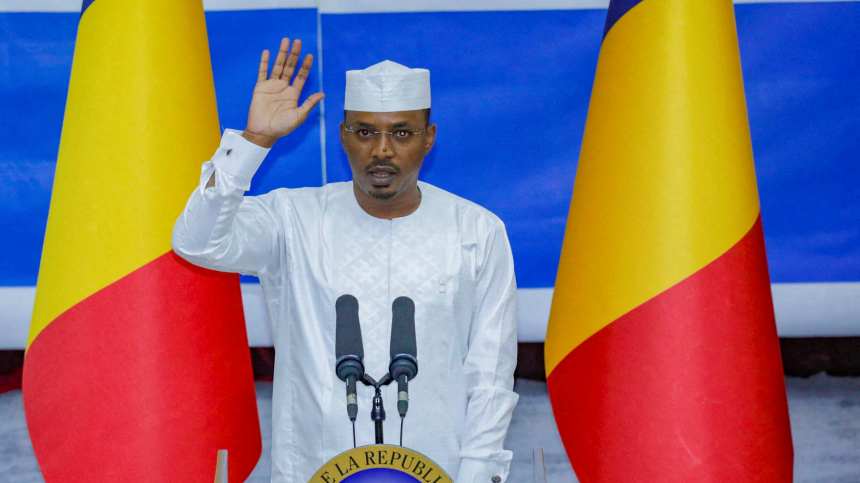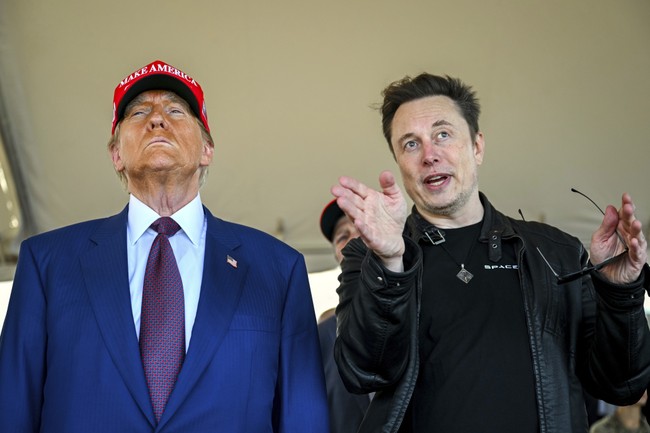Political Turmoil and Military Attacks in Chad
Chad faces significant political turmoil and military challenges as a recent attack on the Presidential Palace raises questions about stability and security in the region.
Published January 12, 2025 - 00:01am

Image recovered from 5-tv.ru
The recent turmoil in Chad has raised significant concerns about the stability and security of the Central African nation. On a fateful evening, gunfire erupted near the presidential palace in N'Djamena, the capital of Chad, leading to the deaths of several individuals, including members of the military and the assailants. Reports indicate that armed men attempted to breach the presidential grounds, which resulted in a frantic military response to quell the attack. Present within the presidential residence at the time of the attack was President Mahamat Idriss Déby. The incident, which led to closed off streets and increased security, has prompted immediate military interventions as tanks rolled into the government's administrative quarters.
Soon after the episode, President Mahamat Idriss Déby publicly regarded the incident as an attempted assassination. He commended the Presidential Guard for their courage and effectiveness in thwarting what he described as an assault by a group of miscreants. According to Déby, the attack was not only a mere act of violence but an outright attempt to destabilize the nation and undermine its constitutional governance. Despite the chaos and confusion of the event, authorities now claim the situation is under control, reaffirming the governmental stability in the face of threats.
Accounts from security personnel reveal that the attackers were 24 in number, driving three vehicles, attempting to penetrate the military blockade surrounding the presidential seat. These individuals were reportedly armed and, as purported by the government spokesperson, under the influence, further complicating the already volatile encounter. The Chad government promptly stated that the targeted attack was an act of utmost severity, suggesting broader implications for the nation, which has faced political turbulence during recent elections. Political opposition in Chad has been vocal about their discontent, allegedly feeling suppressed by the current administration under Mahamat Idriss Déby's rule since April 2021.
In response to the attack, the government of Chad is conducting investigations to bring the perpetrators to justice. Alongside national efforts, international allies and neighboring states have extended support to Chad, demonstrating solidarity against acts of aggression targeting the nation's governance. Despite the support, these events have brought to light the ongoing security challenges Chad faces, particularly threats from militant groups like Boko Haram, which frequently target regions within Central Africa.
This incident further amplifies the ongoing discourse around France's military influence in Chad and broader Africa. Notably, some African leaders, including those from Chad and Senegal, have expressed frustrations over French President Emmanuel Macron's remarks about French troops' roles in Africa. These leaders assert decisions regarding foreign military presence on African soil should remain under their sovereignty. The decision by nations such as Senegal, Chad, and Ivory Coast to oust French troops reflects a growing sentiment for self-determination and autonomy concerning national security.
French military involvement has historically been multifaceted, comprising training, peacekeeping, and logistical support activities aimed at combating extremism. However, critics argue that these military bases also serve as implements for France to maintain political leverage and uphold supportive regimes. The dynamic between former colonial powers and African nations continues to evolve, marked by shifting alliances and national policies shaped by security demands and regional threats.
As Chad navigates through these troubled waters, the country must balance domestic stability with external pressures and regional security concerns. Citizens face an uncertain future, hopeful the current administration can effectively manage internal discontent and governorship challenges left by Mahamat Déby's predecessor and father, Idriss Déby, a long-standing figure in Chadian politics. This evolving narrative in Chad resonates with the wider geopolitical complexities that African countries contend with, often amid tensions between sovereign decision-making and foreign intervention.







